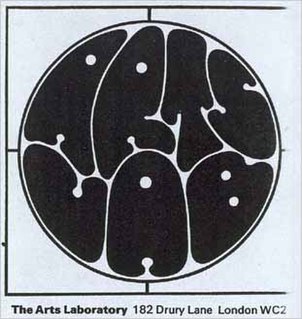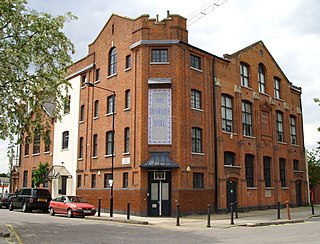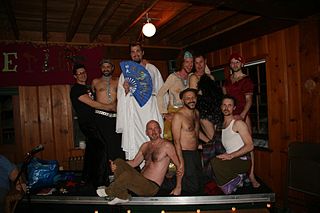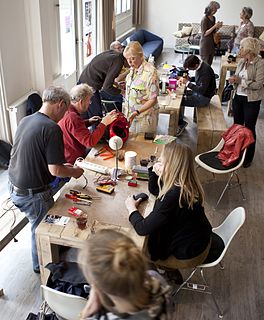 W
WA counterculture is a culture whose values and norms of behavior differ substantially from those of mainstream society, sometimes diametrically opposed to mainstream cultural mores. A countercultural movement expresses the ethos and aspirations of a specific population during a well-defined era. When oppositional forces reach critical mass, countercultures can trigger dramatic cultural changes. Prominent examples of countercultures in the Western world include the Levellers (1645–1650), Bohemianism (1850–1910), the Non-conformists of the 1930s, the more fragmentary counterculture of the Beat Generation (1944–1964), followed by the globalized counterculture of the 1960s (1964–1974), usually associated with the hippie subculture as well as the diversified punk subculture of the 1970s and 1980s.
 W
W420, 4:20, or 4/20 is cannabis culture slang for marijuana and hashish consumption, especially smoking around the time 4:20 p.m., and also refers to cannabis-oriented celebrations that take place annually on April 20.
 W
WThe Arts Lab was an alternative arts centre, founded in 1967 by Jim Haynes at 182 Drury Lane, London. Although only active for two years, it was influential in inspiring many similar centres in the UK, continental Europe and Australia, including the expanded Institute of Contemporary Arts (ICA) in London, the Milky Way/Melkweg in Amsterdam, the Entrepôt in Paris and the Yellow House Artist Collective founded by Martin Sharp in Sydney.
 W
WAt the Hub is a lengthy 2007 Hebrew political poem written by Uri Zvi Greenberg and edited by Dan Miron and Greenberg's widow Aliza Greenberg–Tur-Malka. Its publishing was made possible with the help of the Menachem Begin Heritage Center, the Israeli Ministry of Education, the Israeli Ministry of Culture and Sport, the Yehoshua Rabinovich Foundation for the Arts, Tel Aviv, and, the Mifal HaPais Council for the Culture and Arts.
 W
WThe Battle of the Beanfield took place over several hours on 1 June 1985, when Wiltshire Police prevented The Peace Convoy, a convoy of several hundred New Age travellers, from setting up the 1985 Stonehenge Free Festival in Wiltshire, England. The police were enforcing a High Court injunction obtained by the authorities prohibiting the 1985 festival from taking place. Around 1,300 police officers took part in the operation against approximately 600 travellers.
 W
WThe Beatnik was a media stereotype prevalent throughout the late 1940s, 1950s to mid-1960s that displayed the more superficial aspects of the Beat Generation literary movement of the late 1940s and early to mid 1950s. Elements of the beatnik trope included pseudo-intellectualism, drug use, and a cartoonish depiction of real-life people along with the spiritual quest of Jack Kerouac's autobiographical fiction.
 W
WBlack Bear Ranch is an 80-acre intentional community located in Siskiyou County, California, about 25 miles from Forks of Salmon. It was founded in 1968, with the watchword "free land for free people". It has been considered by some participants and commentators to be one of the more radical examples of communal living/intentional communities that grew out of the counterculture of the 1960s.
 W
WThe counterculture of the 1960s was an anti-establishment cultural phenomenon that developed throughout much of the Western world between the mid-1960s and the mid-1970s. The aggregate movement gained momentum as the U.S. Civil Rights Movement continued to grow, and, with the expansion of the American Government's extensive military intervention in Vietnam, would later become revolutionary to some. As the 1960s progressed, widespread social tensions also developed concerning other issues, and tended to flow along generational lines regarding human sexuality, women's rights, traditional modes of authority, experimentation with psychoactive drugs, and differing interpretations of the American Dream. Many key movements related to these issues were born or advanced within the counterculture of the 1960s.
 W
WCyberdelic was the fusion of cyberculture and the psychedelic subculture that formed a new counterculture in the 1980s and 1990s.
 W
WReginald Robin Farquharson was an academic whose interest in mathematics and politics led him to work on game theory. He wrote an influential analysis of voting systems in his doctoral thesis, later published as Theory of Voting.
 W
WFlower child originated as a synonym for hippie, especially among the idealistic young people who gathered in San Francisco and the surrounding area during the Summer of Love in 1967. It was the custom of "flower children" to wear and distribute flowers or floral-themed decorations to symbolize ideals of universal belonging, peace, and love. The mass media picked up on the term and used it to refer in a broad sense to any hippie. Flower children were also associated with the flower power political movement, which originated in ideas written by Allen Ginsberg in 1965.
 W
WFlower power was a slogan used during the late 1960s and early 1970s as a symbol of passive resistance and nonviolence. It is rooted in the opposition movement to the Vietnam War. The expression was coined by the American Beat poet Allen Ginsberg in 1965 as a means to transform war protests into peaceful affirmative spectacles. Hippies embraced the symbolism by dressing in clothing with embroidered flowers and vibrant colors, wearing flowers in their hair, and distributing flowers to the public, becoming known as flower children. The term later became generalized as a modern reference to the hippie movement and the so-called counterculture of drugs, psychedelic music, psychedelic art and social permissiveness.
 W
WFrestonia was the name adopted by the residents of Freston Road, London, when they attempted to secede from the United Kingdom in 1977 to form the Free and Independent Republic of Frestonia. The residents were squatters, many of whom eventually set up a housing co-op in negotiation with Notting Hill Housing Trust, and included artists, musicians, writers, actors and activists. Actor David Rappaport was the Foreign Minister, while playwright Heathcote Williams served as Ambassador to the United Kingdom.
 W
WRobert Jasper Grootveld was a Dutch artist, best known for his events on the Spui in Amsterdam. Grootveld's 'happenings' were a forerunner of the Provo movement, which he later joined.
 W
WJames Almand Haynes was an American-born figure in the British "underground" and alternative/counter-culture scene of the 1960s. He was involved with the founding of Edinburgh's Traverse Theatre, the paper International Times and the London Arts Lab in Drury Lane for experimental and mixed media work.
 W
WHjelmsgate 3 is a self-managed social centre in Oslo, Norway. The wooden house was constructed in 1858 and from the late 1960s onwards it has been a central node in the Norwegian counterculture.
 W
WThe first Internationale Walter Benjamin Gesellschaft [ɡəˈzɛlʃaft], here understood as "commune", was a founding within the 68er-Bewegung in Hamburg, at the time when the American Counterculture reached Europe’s students.
 W
WJesus freak is a term arising from the late 1960s and early 1970s counterculture and is frequently used as a pejorative for those involved in the Jesus movement. As Tom Wolfe illustrates in The Electric Kool-Aid Acid Test, the term "freak" with a preceding qualifier was a strictly neutral term and described any counterculture member with a specific interest in a given subject; hence "acid freak" and "Jesus freak". The term "freak" was in common-enough currency that Hunter S. Thompson's failed bid for sheriff of Pitkin County, Colorado, was as a member of the "Freak Power" party. However, many later members of the movement, those misunderstanding the countercultural roots believed the term to be negative, and co-opted and embraced the term, and its usage broadened to describe a Christian subculture throughout the hippie and back-to-the-land movements that focused on universal love and pacifism, and relished the radical nature of Jesus's message. Jesus freaks often carried and distributed copies of the Good News for Modern Man, a 1966 translation of the New Testament written in modern English. In Australia, and other countries, the term Jesus freak, along with Bible basher, is still used in a derogatory manner. In Germany, there is a Christian youth culture, also called Jesus Freaks International, that claims to have its roots in the U.S. movement.
 W
WLebensreform was a social reform movement in the late 19th-century and early 20th-century German Empire and Switzerland. Representatives of the Lebensreform propagated a natural way of life with organic farming, a vegetarian diet without alcoholic beverages and tobacco smoking, German dress reform and naturopathy. In doing so, they reacted to what they saw as the negative consequences of social changes in the 19th century. Spiritually, the Lebensreform turned to new religious and spiritual views, including theosophy, Mazdaznan and yoga. Many late neo-romanticism elements were also taken up, along with a glorification of the "simple life in the country". Common features were the criticism of industrialisation, materialism and urbanization combined with striving for the state of nature.
 W
WNeradnik is countercultural youth fanzine from the south Belgrade suburbs, Serbia.
 W
WNew Age travellers, not completely synonymous with but otherwise shortened to New Travellers,, are people in the United Kingdom generally espousing New Age beliefs along with the hippie culture of the 1960s, and who used to travel between free music festivals and fairs prior to crackdown in the 1990s, who now congregate in community with others who hold similar beliefs on various authorised and unauthorised sites.
 W
WThe prohibition of drugs through sumptuary legislation or religious law is a common means of attempting to prevent the recreational use of certain intoxicating substances.
 W
WProvo was a Dutch counterculture movement in the mid-1960s that focused on provoking violent responses from authorities using non-violent bait. It was preceded by the nozem movement and followed by the hippie movement. Provo was founded, on 25 May 1965, by Robert Jasper Grootveld, an anti-smoking activist, and the anarchists Roel van Duijn and Rob Stolk. The term was used for the movement as a whole and for individual members. Provo was officially disbanded on 13 May 1967.
 W
WThe Radical Faeries are a loosely affiliated worldwide network and countercultural movement seeking to redefine queer consciousness through secular spirituality. Sometimes deemed a form of modern Paganism, the movement also adopts elements from anarchism and environmentalism.
 W
WRainbow Gatherings are temporary, loosely knit communities of people, who congregate in remote forests around the world for one or more weeks at a time with the stated intention of living a shared ideology of peace, harmony, freedom, and respect. In the original invitation, spread throughout the United States in 1971, the "Rainbow Family Tribe" referred to themselves as "brothers & sisters, children of God", "Families of life on Earth", "Friends of Nature & of all People" and "Children of Humankind". All races, nations, politicians, etc. were invited in the desire that there could be peace among all people. The goal was to create what they believed was a more satisfying culture — free from consumerism, capitalism, and mass media — one that would be non-hierarchical, that would further world peace, and serve as a model for reforms to mainstream society. However, the values actually exhibited by the group have at times varied quite a bit from this ideal, with recent decades showing increasing levels of crime at the events, and some organizers stating the core principles have been modified, and become more mainstream, in an effort to attract more people.
 W
WSidney William "Sid" Rawle was a British campaigner for peace and land rights, free festival organiser, and a former leader of the London squatters movement. Rawle was known to British tabloid journalists as 'The King of the Hippies', not a title he ever claimed for himself, but one that he did eventually co-opt for his unpublished autobiography.
 W
WA Repair Café is a place where people gather to work on repairing objects of everyday life such as electrical and mechanical devices, computers, bicycles, clothing, and other items. Repair Cafés are held at a fixed location such as church, library or campus where tools are available and where they can fix their broken goods with the help of volunteers. Repair Café is also a new form of the grassroots movement that aims to reduce waste, overcome the current consumption habits of the society and the impulse planned obsolescence by organizations. Furthermore, it can re-ignite do-it-together and "Do it yourself" spirits and strengthen social cohesion.
 W
WStilyagi were members of a youth counterculture from the late 1940s until the early 1960s in the Soviet Union. A stilyaga, was primarily distinguished by snappy clothing—preferably foreign-label, acquired from fartsovshchiks—that contrasted with the communist realities of the time, and their fascination with zagranitsa, modern Western music and fashions corresponding to that of the Beat Generation. English writings on Soviet culture variously translated the derogatory term as "dandies", "fashionistas", "beatniks", "hipsters", "zoot suiters", etc.
 W
WThe Stonehenge Free Festival was a British free festival from 1974 to 1984 held at the prehistoric monument Stonehenge in England during the month of June, and culminating with the summer solstice on or near 21 June. It emerged as the major free festival in the calendar after the violent suppression of the Windsor Free Festival in August 1974, with Wally Hope providing the impetus for its founding, and was itself violently suppressed in 1985 in the Battle of the Beanfield, with no free festival held at Stonehenge since although people have been allowed to gather at the stones again for the solstice since 1999.
 W
WThe Family Dog Denver, was a concert dance hall located at 1601 West Evans Avenue in Denver, Colorado. Opened from September 1967 to July 1968, it is regarded as a seminal music venue that launched Denver on its trajectory to its current status as a major concert destination by introducing never-before-seen acts like The Doors, Van Morrison, Jimi Hendrix, Cream, Buffalo Springfield, Janis Joplin, Chuck Berry, and many others. Many acts, like The Doors and Van Morrison, for example, had yet to become famous when they played The Dog, evidenced by the poster artists having to stylize the names of their leading songs into the poster art for the shows. The Family Dog is also seen as a cultural turning point in Denver from the conservative, western-minded sensibility of the early and mid-20th century to the current, liberal-minded climate. The venue's history, surrounding drama and ultimate impact had been largely unknown and unrealized until it was unearthed and detailed for the first time in the 2021 documentary, The Tale of the Dog, produced and directed by Dan Obarski & Scott Montgomery and distributed by Cinedigm. As there are no useful photos, no video and little written history remaining of the Family Dog Denver, the film's oral history format told in first person by the people who were there serves as a definitive reference for “The Dog.”
 W
WJames Wasserman was an American author and occultist. A member of Ordo Templi Orientis since 1976 and a book designer by trade, he wrote extensively on spiritual and political liberty.
 W
WJohn Henley Heathcote-Williams, known as Heathcote Williams, was an English poet, actor, political activist and dramatist. He wrote a number of book-length polemical poems including Autogeddon, Falling for a Dolphin and Whale Nation, which in 1988 was described by Philip Hoare as "the most powerful argument for the newly instigated worldwide ban on whaling." Williams invented his idiosyncratic "documentary/investigative poetry" style which he put to good purpose bringing a diverse range of environmental and political matters to public attention. His last published work, American Porn was a critique of the American political establishment and the election of President Donald Trump; its publication date was the date of Trump's inauguration. In June 2015 he published a book-length investigative poem about the "Muslim Gandhi", Khan Abdul Ghaffar Khan, "Badshah Khan".
 W
WA youth subculture is a youth-based subculture with distinct styles, behaviors, and interests. Youth subcultures offer participants an identity outside of that ascribed by social institutions such as family, work, home and school. Youth subcultures that show a systematic hostility to the dominant culture are sometimes described as countercultures.